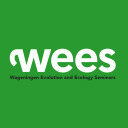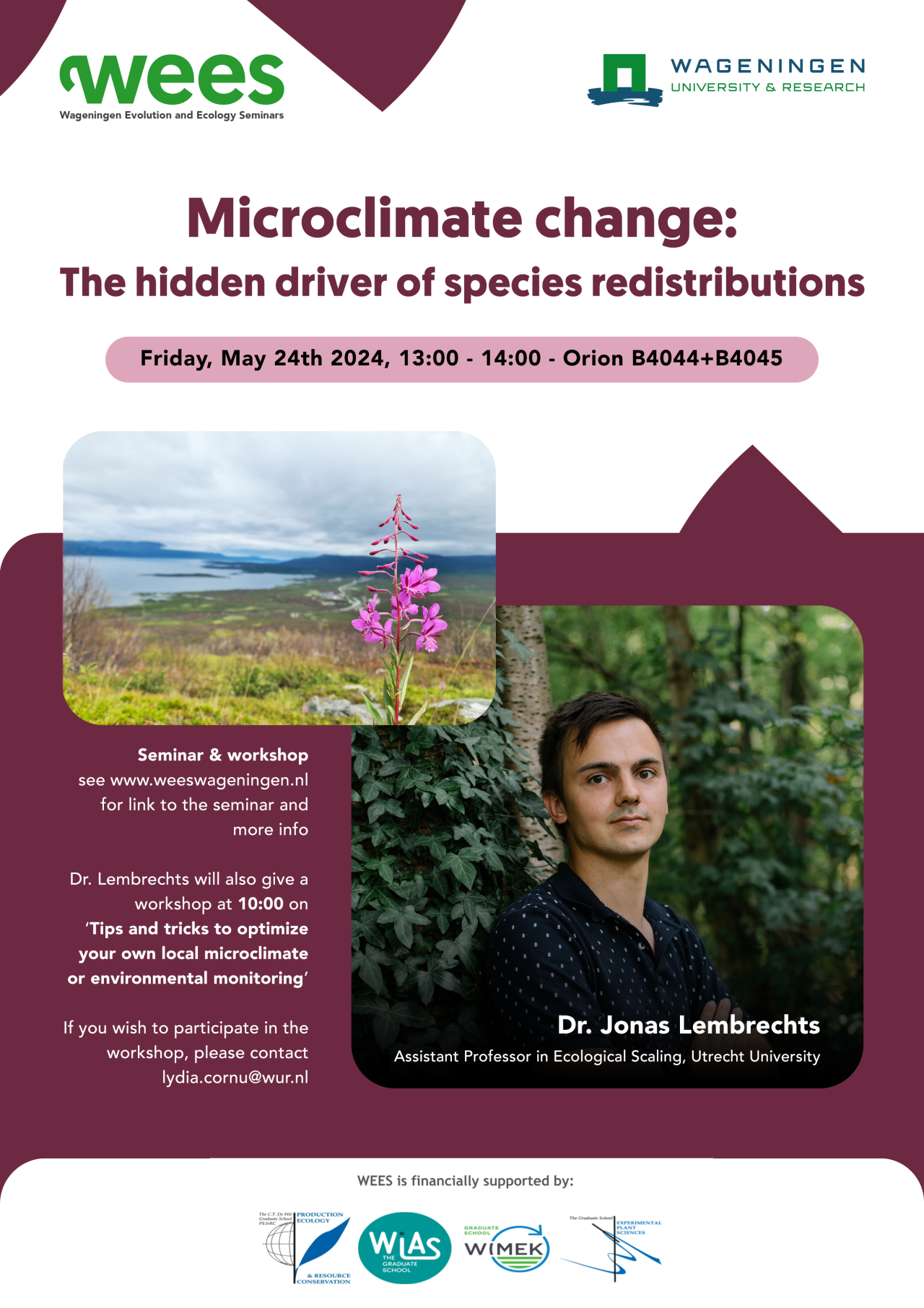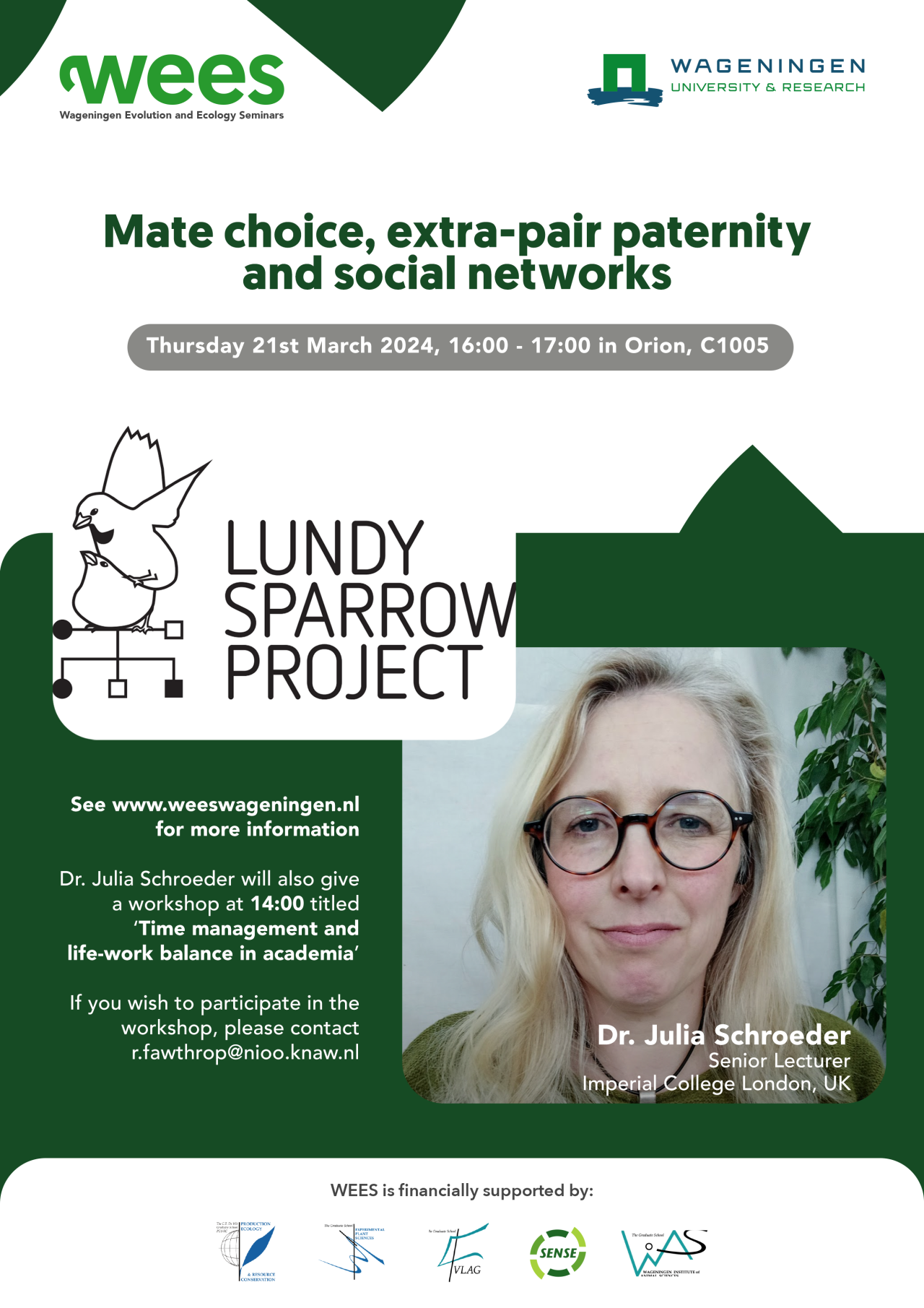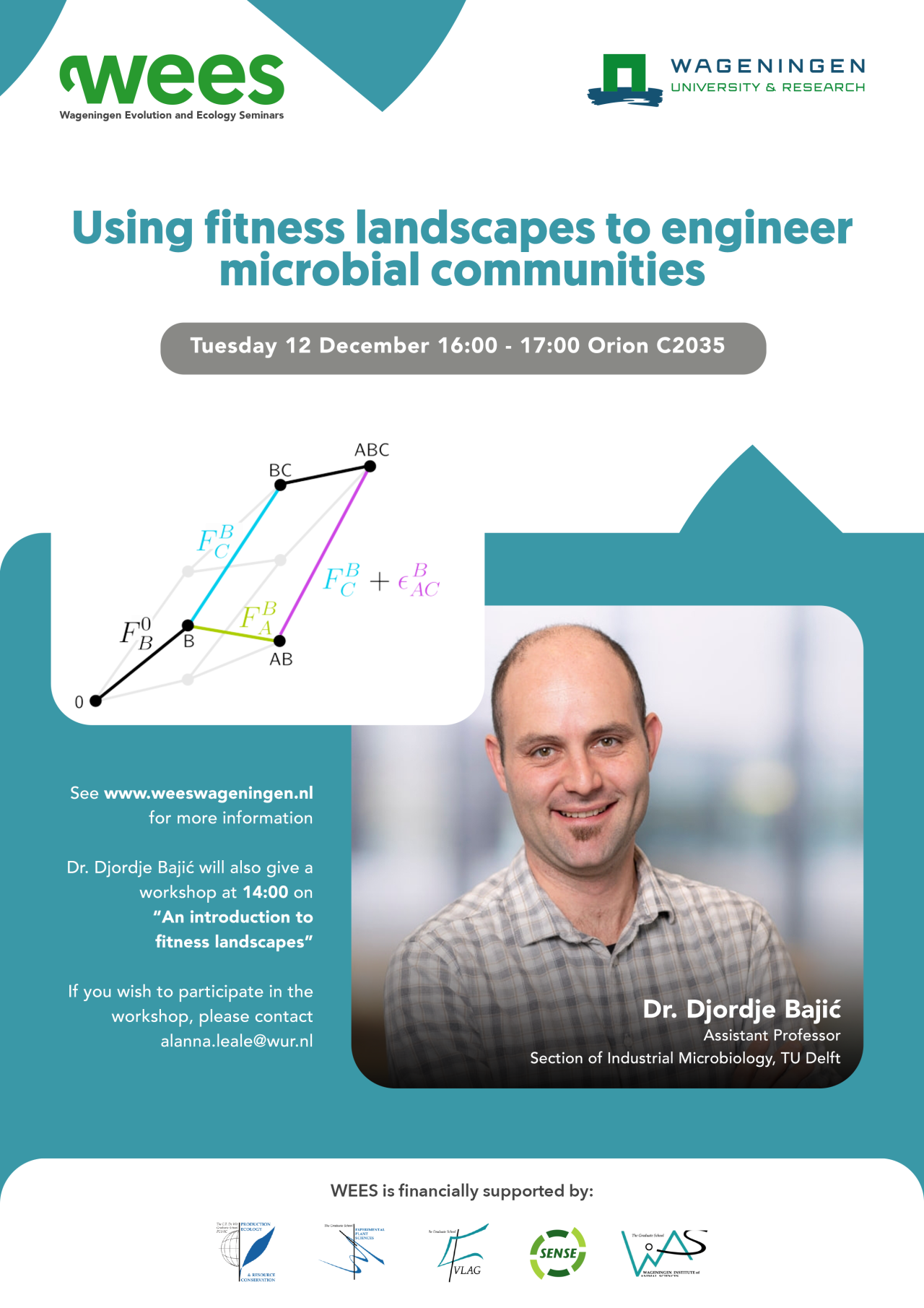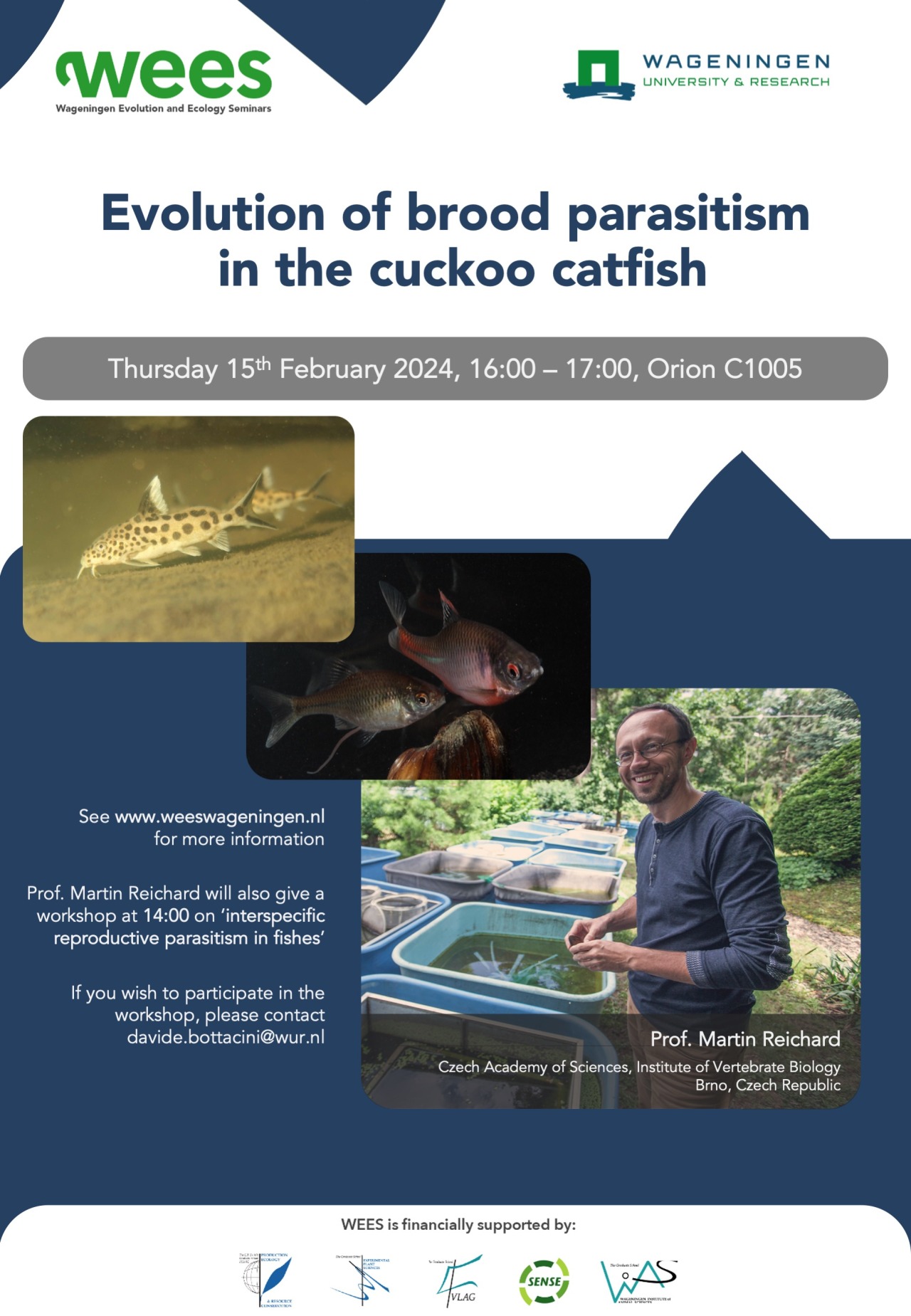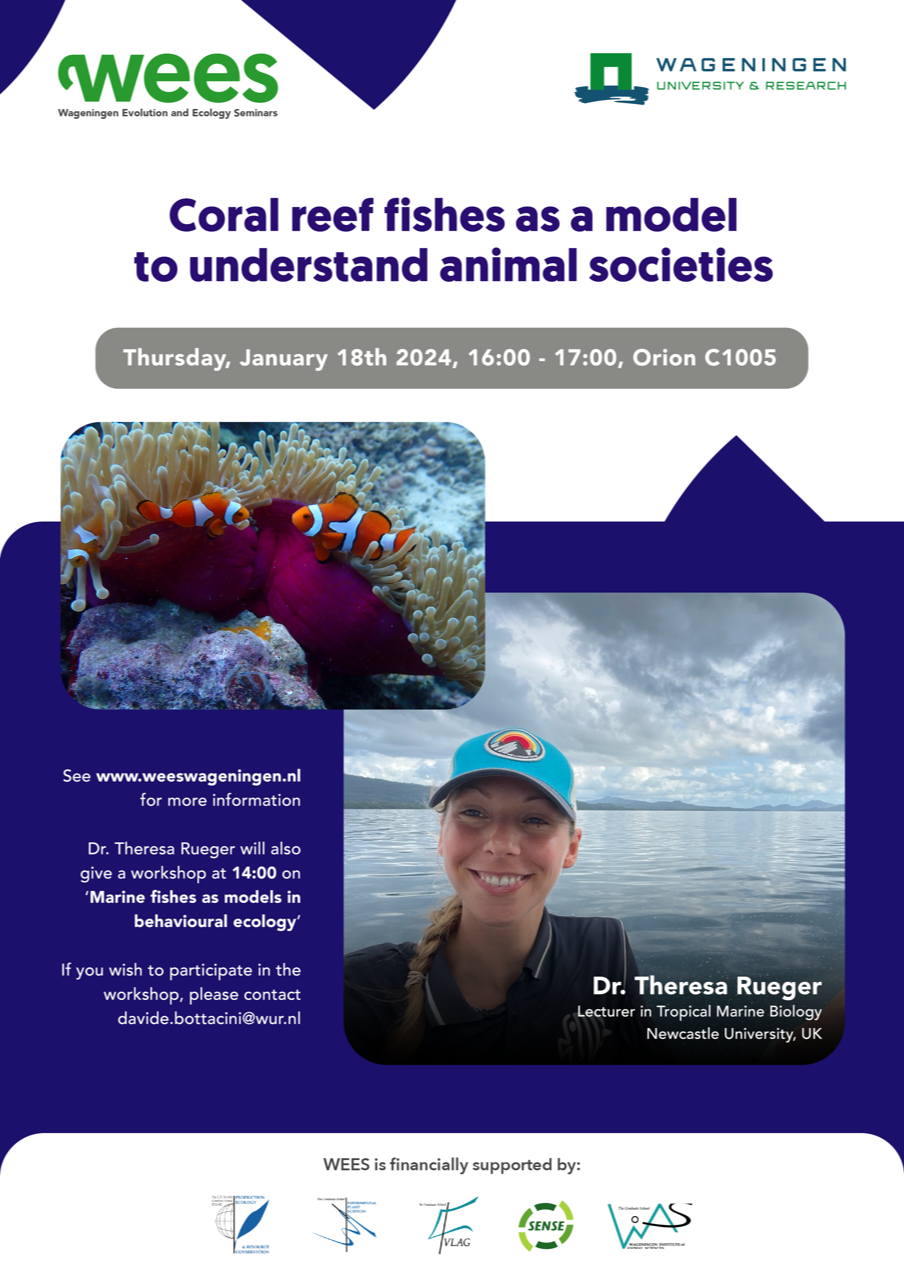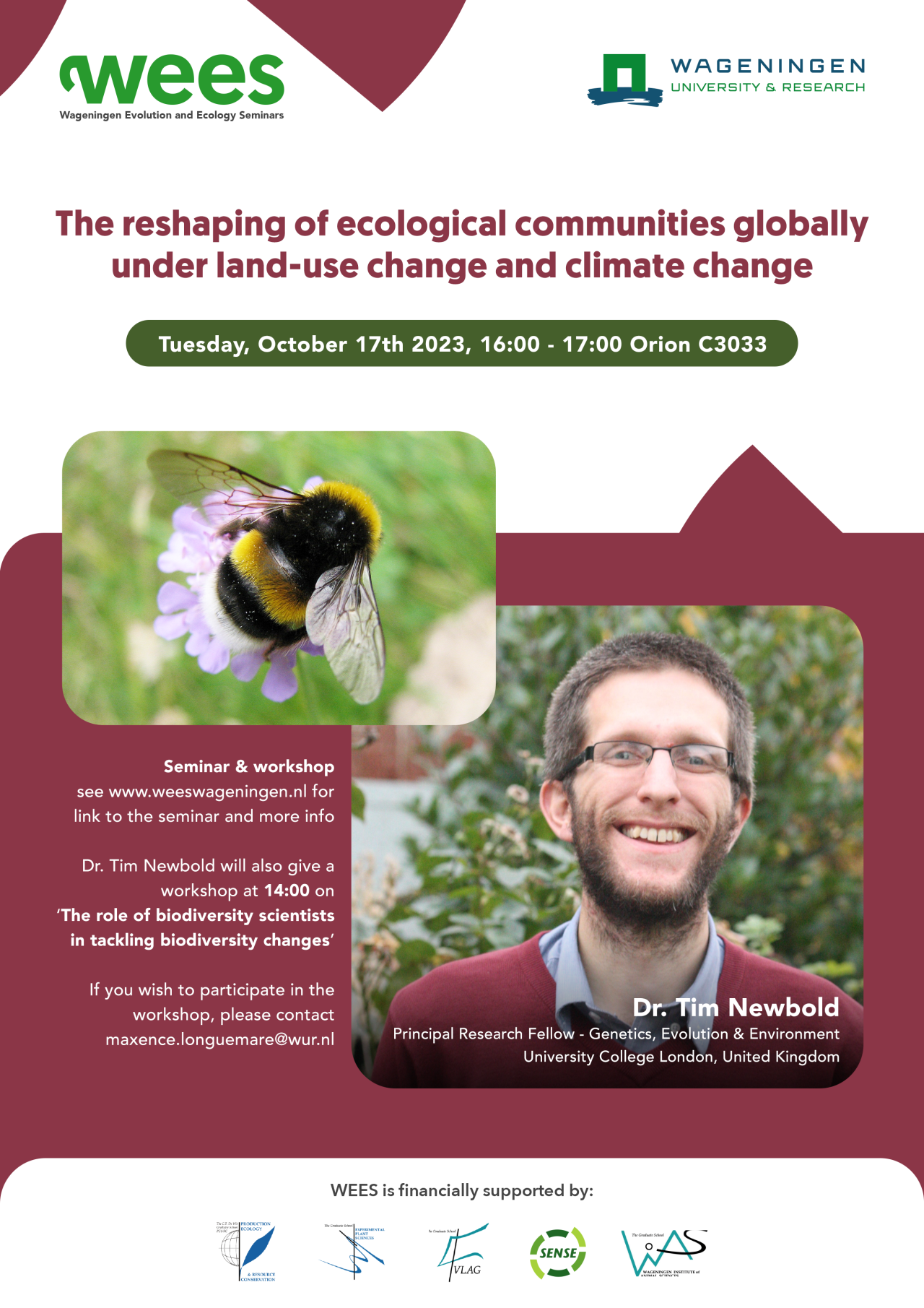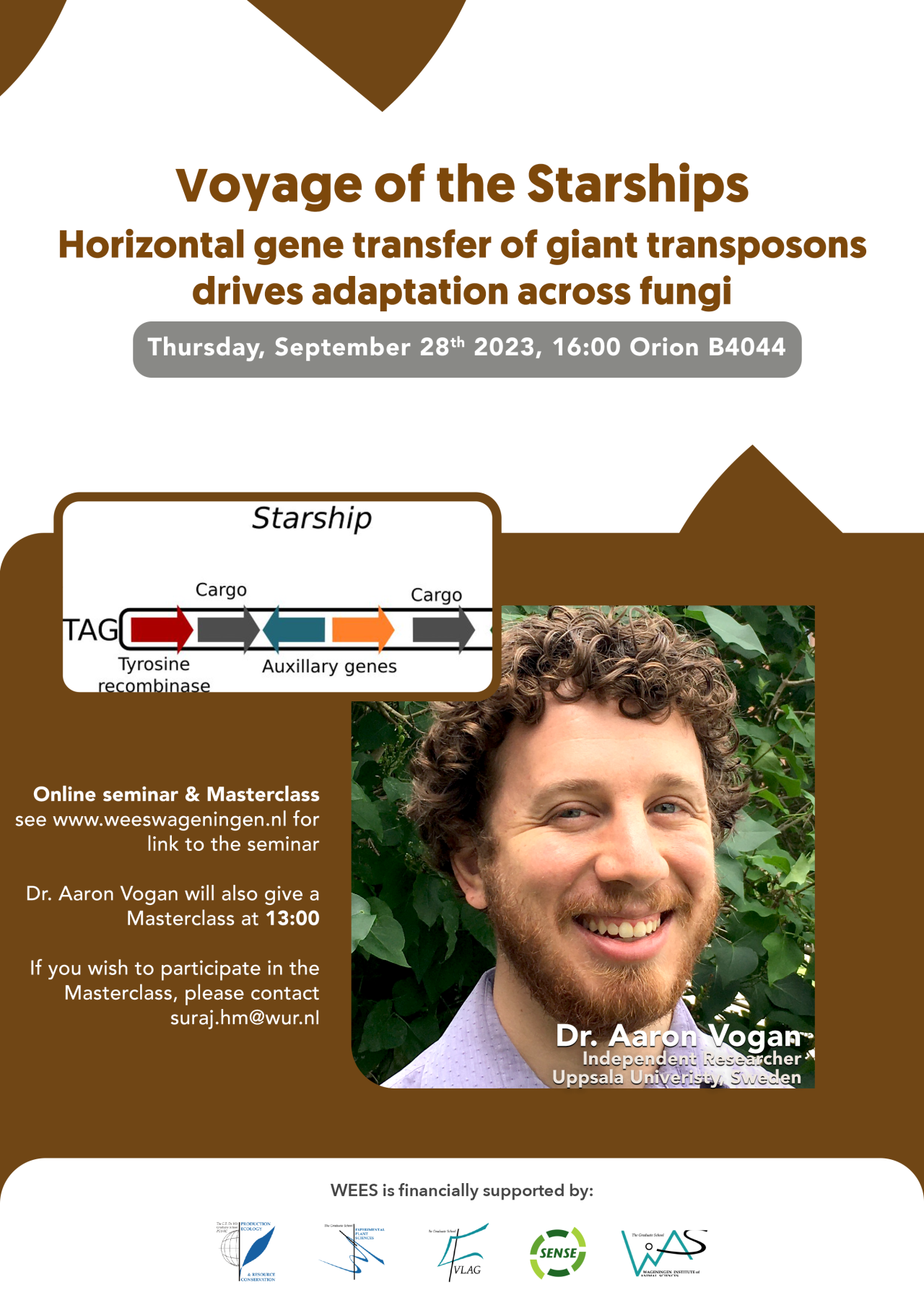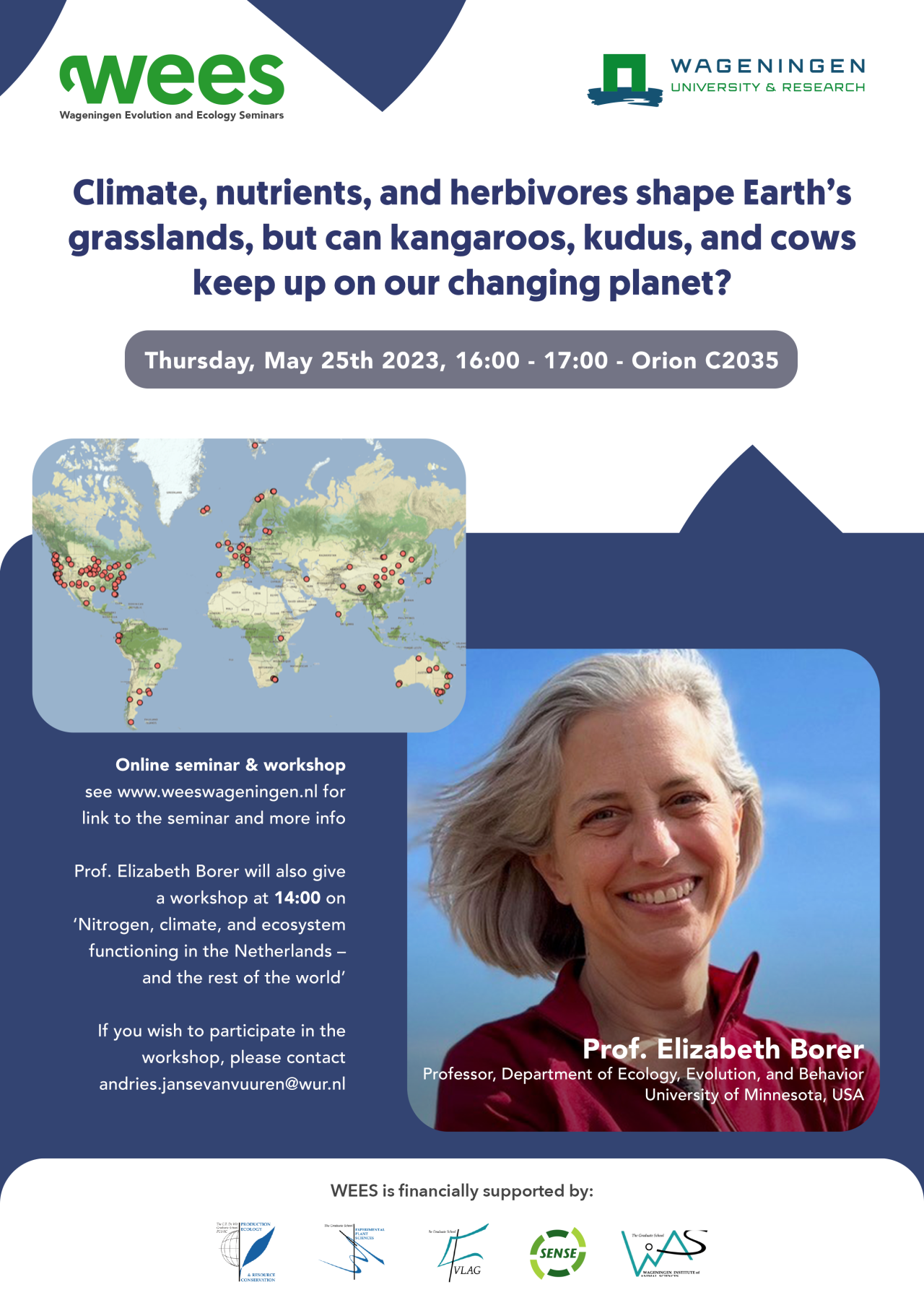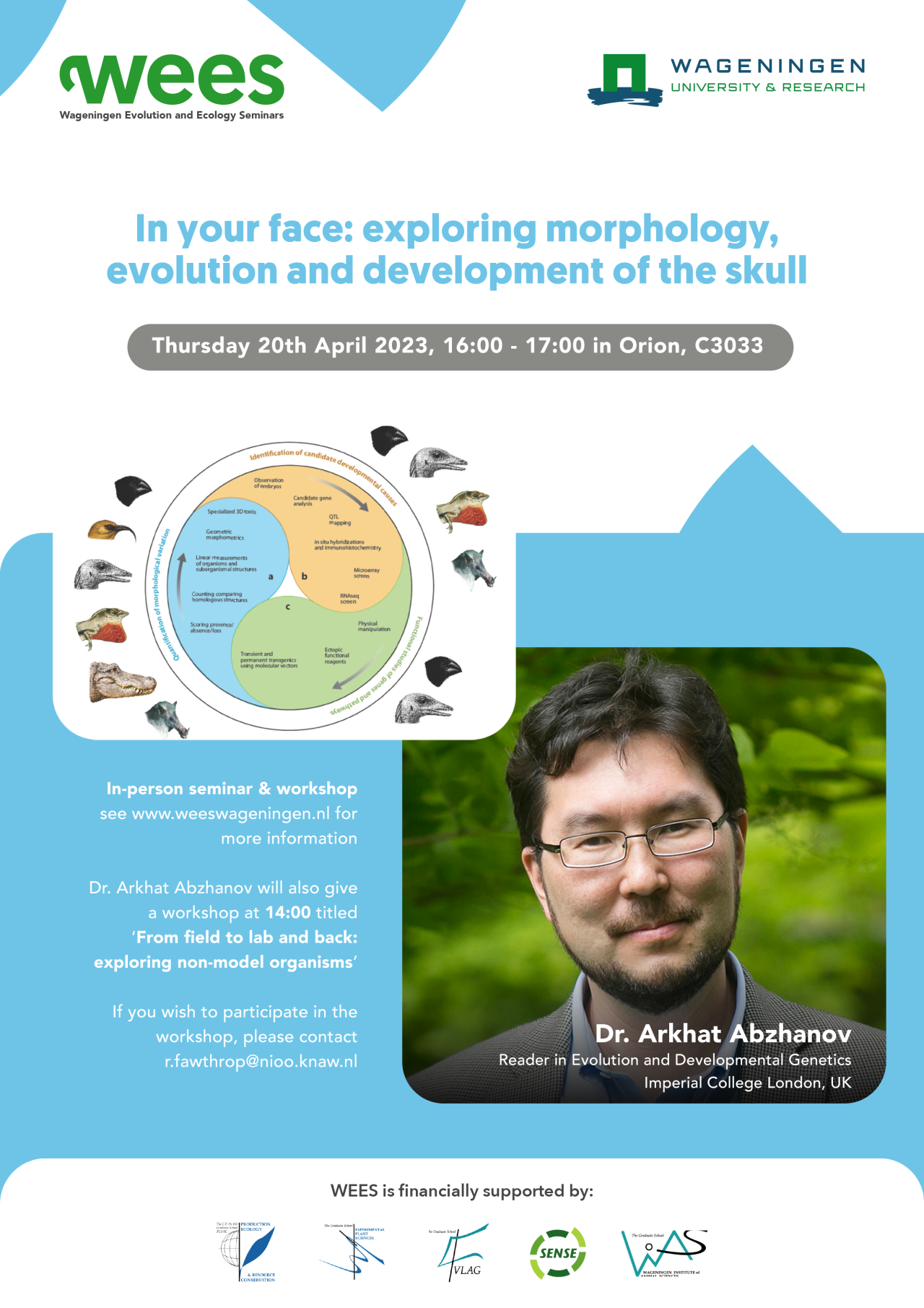We are please to announce May’s Wageningen Evolution and Ecology Seminar (WEES) event!
The Seminar will take place on Friday 24th of May, 13:00-14:00 in Orion, B4044 & B4045. This will be followed by a gathering at the Spot.
The associated Workshop will take place from 10:00 - 11:30 in OrionB4042. The workshop gives attendees the opportunity to meet the seminar’s speaker and have a discussion about a hot topic in science. Furthermore, BSc and MSc students can get 1 ECTS for attending 2 workshops. Registration is required for this workshop and you can sign up by emailing Lydia Cornu (lydia.cornu@wur.nl).
You are also welcome to join the speaker for dinner in Wageningen on Thursday May 23rd, or lunch on campus on Friday May 24th (this will be at your own expense). If you are interested, please email Lydia Cornu (lydia.cornu@wur.nl).
Please feel free to forward this information to anyone who could be interested!
——————————————————————————
Seminar: Microclimate Change: The Hidden driver of species redistribution
Friday, May 24th 2024, 13:00 - 14:00, Orion B4044 + B4045
Dr. Jonas Lembrechts
Assistant Professor in Ecological Scaling
Utrecht University, The Netherlands
Recent research has shown that the impacts of climate change on terrestrial species distributions are more complex than expected. Species distributions are showing significant delays in responses, or have shifted in unexpected directions. Scientists have identified several mechanisms that could explain these mismatches, including slow population dynamics, habitat fragmentation, and biotic interactions that limit the spread of species. Yet, one crucial aspect remains largely overlooked: we first need relevant high-resolution baseline climate change data to accurately answer this question.
Indeed, organisms respond to microclimate change, which can differ significantly from macroclimate change. We know that local temperatures near the ground or below vegetation can be several degrees different from weather station data. However, it remains a mystery how quickly these microclimates are changing, as this depends as much on climate change as on land use changes.
In this talk, we will explore how the SoilTemp-database, a global database of more than 100,000 in-situ measured microclimate time series, can be used to improve global microclimate products and ultimately provide better estimates of microclimate change. By applying these products to improve our ecological models, from species distributions over disease prediction to decomposition, we can better understand the impacts of climate change on biodiversity and ecosystem functioning, crucial for adjusting biodiversity management to a rapidly changing world.
——————————————————————————
Workshop: Tips and tricks to optimize your own local microclimate or environmental monitoring
Friday, May 24th 2024, 10:00 - 11:30, Orion B4042
Effective microclimate monitoring requires putting microclimate on the forefront. Up till now, many on-the-ground observations are still an afterthought of more ‘important’ ecological questions, and such ad-hoc sensor deployments may fail to capture the environmental heterogeneity one is interested in. In this workshop, Dr. Lembrechts will summarize the recent (unpublished) efforts by the SoilTemp-network to create standardized - yet flexible - workflows to design microclimate networks, targeting academic and applied ecologists interested in biodiversity conservation, natural resource management, and climate adaptation.
Drawing on years of experience with networks from across the globe (from a 5000-strong citizen science network in Flanders to a nation-wide network in Oman or local networks on a remote sub-Antarctic island), the workshop covers everything from location and sensor selection, over spatiotemporal resolution to the practicalities of sensor deployment in the field and in pots, and stakeholder engagement. By addressing these known and unknown challenges in sensor deployment, this workshop aims to enhance the utility and robustness of microclimate (and other environmental) monitoring efforts.
There will be plenty of room for discussing particular case studies, questions and issues as experienced by the participants, working towards practical solutions to optimize your own microclimate data collection.
